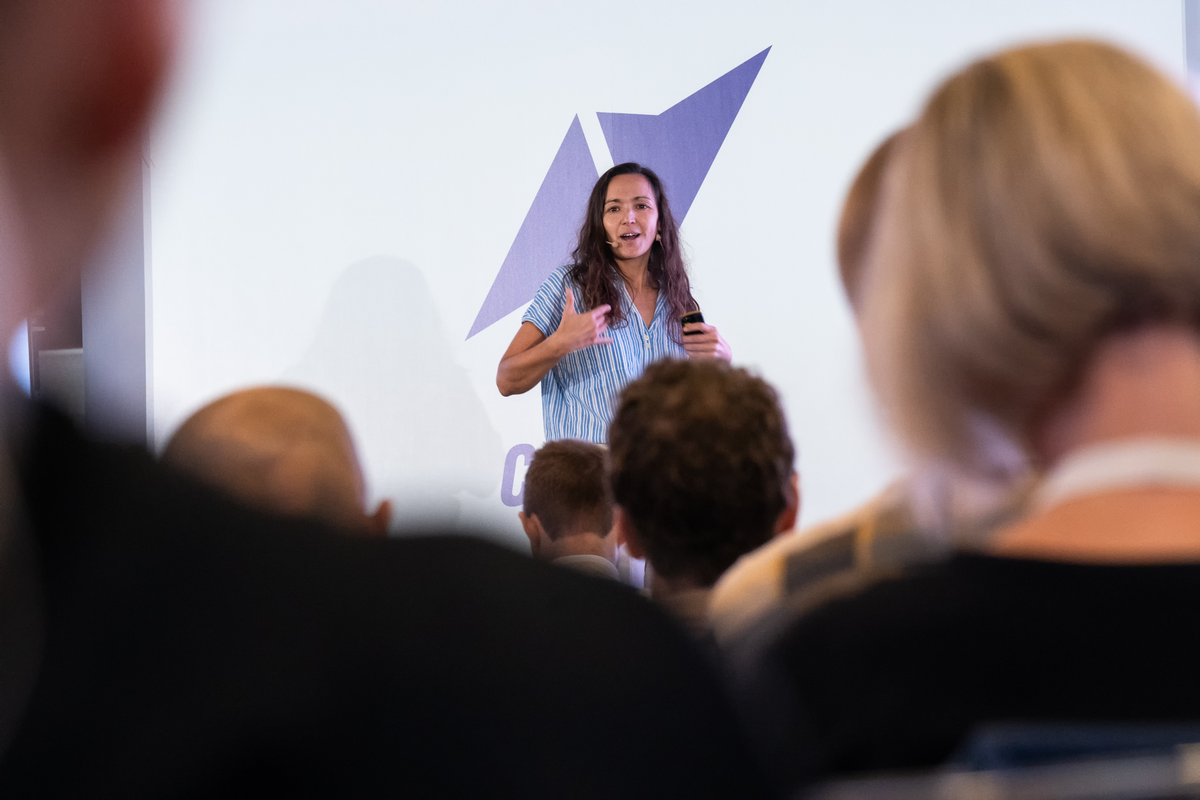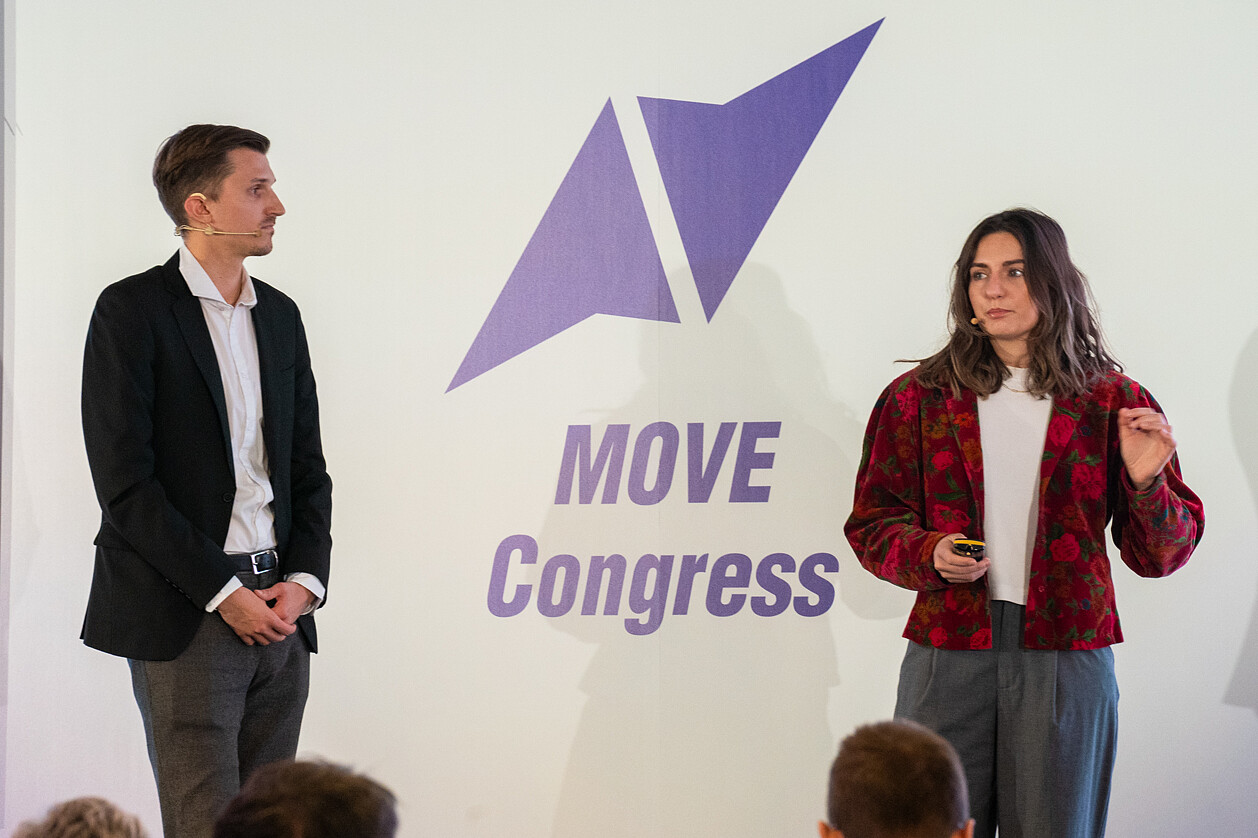Artificial intelligence 101
Using a bakery analogy, Mills explained that the data are the ingredients while the algorithms are the instructions designed to mimic the human brain and perform tasks such as translating, interpreting, summarising, and more. Markus Schwaiger and Julia Lisewska equipped the audience with a list of free AI tools available with a fun and engaging demonstration of how they can help sport organisations.
The session also addressed the inevitable challenges and concerns raised by the fast development of these new and complex technologies and how to manage them.
Solutions such as open-source initiatives, regulatory measures, education and training, especially among under-represented groups, can help combat gender bias perpetuation, concentration of power and the spread of “deep fake” content and misinformation.
And what about sport?
“There is a huge opportunity with emerging technologies like AI to democratise the sport sector, enabling more accessibility with fewer resources,” Mills said.
AI is already present in the sports industry and some organisations are making use of the new possibilities it brings and, according to Mills, this is just the beginning. She pointed out that AI-powered tools tend to be more accessible than the conventional ones, democratising innovation in the sector. Measuring athlete performance, enhancing the fan experience, preventing injuries and optimising equipment design are some of the practical ways in which AI is bringing innovation to sport.
Can AI also help promote inclusion and positive impact in sport? According to Mills and the real-life examples she gave, the answer is yes. By bridging the gender gap and advancing women’s sports, for instance. “For women’s sports to grow, it will need to collect more data, since research has been majorly focused on men’s sports so far. We have tools available that can support the growth of the business side, but the pool is lacking right now.”
Mills also shared a case in which AI technology was used for social media monitoring, helping eliminate discrimination and build a more positive online community, which also translated into direct commercial return.
The audience was invited to reflect on how AI might help them in different areas of their work and take practical steps such as experimenting with free available tools and seeking education through online courses.
Will you take on the challenge too? How can AI improve your work in sport?

